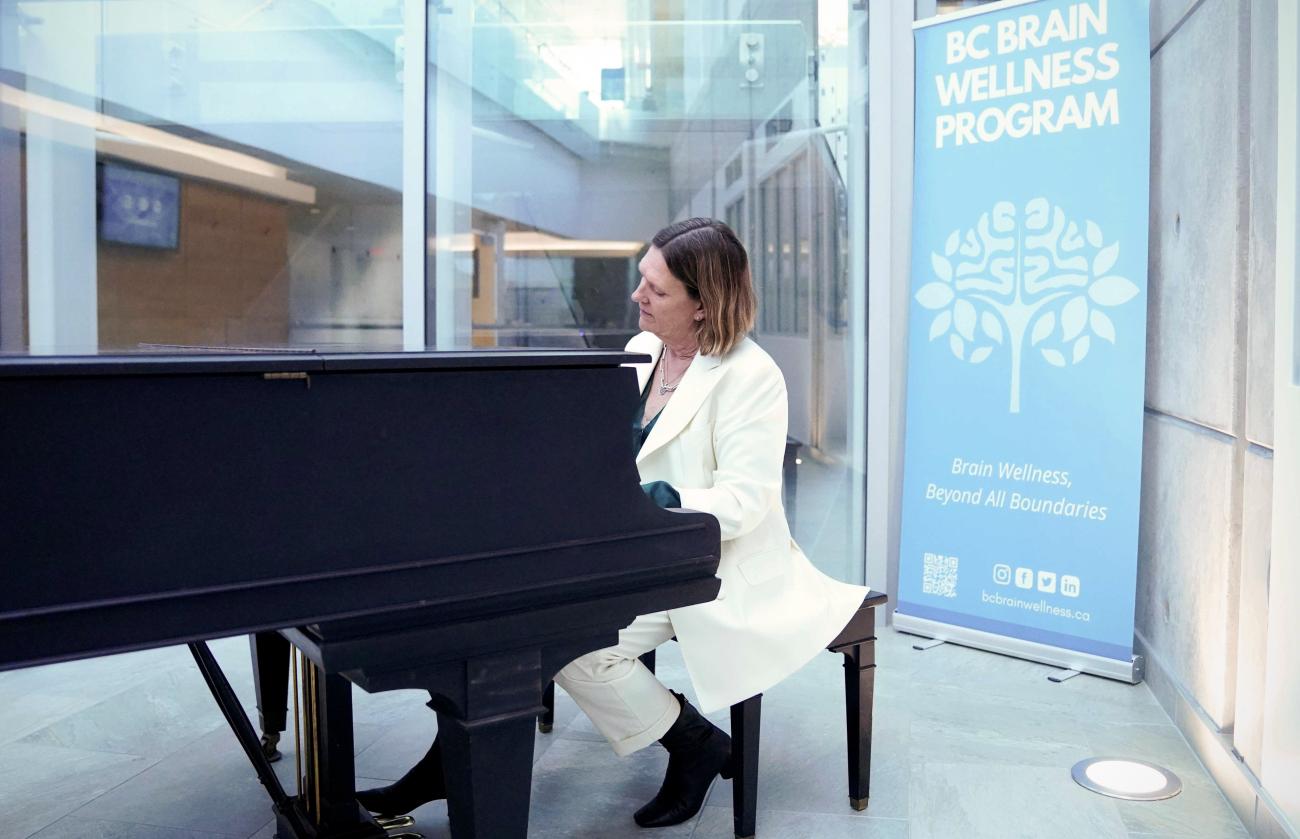
Researchers at Dr. Silke Appel-Cresswell’s lab use music as a non-invasive intervention to enhance brain wellness and promote healthy aging.
With more than 18 per cent of people aged 65 and older, Canada’s aging population is in need of innovative, research-based approaches to slow brain decline and better the quality of life of older adults.
The BC Brain Wellness Program (BCBWP), led by Vancouver Coastal Health Research Institute investigator Dr. Silke Appel-Cresswell, strives to tackle this challenge by offering research-informed lifestyle and wellness programs for older adults, as well as individuals with chronic brain conditions and their care partners.

“Our program aims to promote well-being in individuals with chronic brain conditions and enhance healthy aging through exercise, arts, nutrition, mind care and education.”
Using music to treat apathy among people with Parkinson’s
One of the BCBWP’s current studies is exploring how listening to different types of audio can address apathy — a lack of motivation to initiate activities — in people living with Parkinson’s Disease (PD). The study aims to understand the impact of music as a non-invasive intervention for brain wellness.
PD is a neurological condition that affects movement, mental health, sleep, pain and other aspects of well-being. It is often accompanied by comorbidities that complicate treatment, including non-motor symptoms, such as the loss of smell, along with autonomic dysfunction — which affects essential, automatic bodily functions, such as blood pressure, digestion and temperature control — anxiety, depression, sleep behaviour disorder and apathy. The study hypothesises that audio-based interventions, such as listening to music, could help alleviate apathy in people living with PD.
“In previous research, we have seen that music can lead to various beneficial outcomes, both in healthy individuals and in those with conditions, such as Alzheimer’s,” explains Mikey Jose, a PhD student who is coordinating the study. “Our research aims to explore whether music can help tackle apathy and uncover its underpinning mechanisms.”
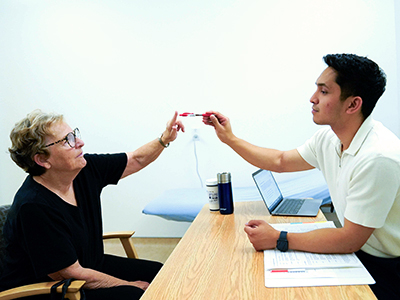
Clinical and behavioural components reflect how participants are feeling, and are measured through questionnaires and a grip force task using the BIOPAC system, which allows individuals to indicate their response by squeezing a pump bulb with their hand. Functional measures of the audio’s impact on the brain are monitored through magnetic resonance imaging (MRI). The brain imaging enables researchers to observe changes in oxygen levels and functional connectivity within the auditory-reward circuit. This will help researchers understand whether music can motivate individuals to engage in activities and, consequently, address apathy.
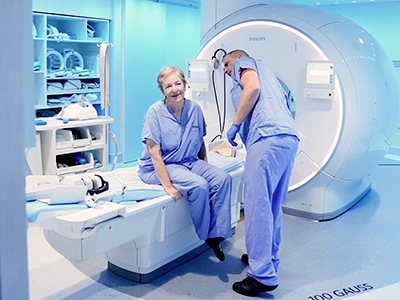
The team emphasizes the vital role of collaboration. The study design was influenced by the research of Dr. Psyche Lui, an associate professor at Northeastern University, while neuroimaging is conducted in partnership with the UBC Brain Behaviour Lab under the guidance of VCHRI researcher Dr. Lara Boyd, a co-investigator of the study.
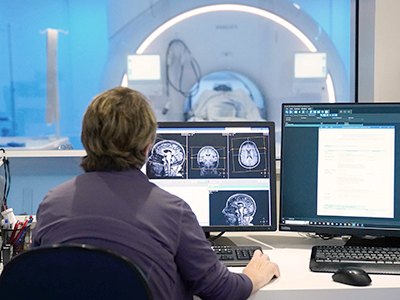
Singing together to fight loneliness
Another recent, music-focused BCBWP study explored the role of virtual collective singing in building connections and alleviating loneliness among older adults. Since social isolation is a major contributor to brain decline and dementia, the study aimed to explore the effects of synchronised singing on participants’ social connectedness and well-being.
Launched during the COVID-19 pandemic, the study’s group, online singing program provided participants with the opportunity to connect socially and creatively through collective singing and exercises.
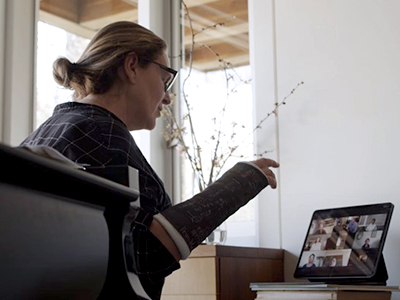
However, virtual communication, and collective singing, in particular, can be hindered by sound delays, affecting cohesion among participants. During the study, individuals transitioned from non-synchronous muted singing to synchronous unmuted audio. Researchers monitored the impact of this transition by tracking the participants’ cortisol levels and heart rates. They also collected qualitative data through focus group and individual conversations. This allowed investigators to explore the role of collective singing and listening in building connections between participants.
“The study revealed that group singing led to numerous benefits, including improved mood, enhanced social bonding, reduced stress and increased physical well-being,” explains Cynthia Friesen, BCBWP Expression and Creation Programs team lead. “Our data showed that the physical act of breathing intentionally together while listening to piano music and being present in the moment helped participants lower their stress levels, while collective singing fostered social cohesion.”
"You feel so much better because we're doing it as a collective... There's still that happiness, that warmth inside."
The study was conducted through a multidisciplinary collaboration involving the Sing Well Project with professor Rena Sharon as a principal investigator from UBC School of Music; the Djavad Mowafaghian Centre for Brain Health; the UBC Faculty of Medicine with Tara Gaertner coordinating the quantitative data analysis; the UBC faculties of Education, Arts and Science; as well as the University of Victoria Faculty of Nursing.
“By combining clinical care with healthy lifestyle interventions, our team strives to improve and sustain the quality of life of individuals living with chronic brain conditions and their care partners, and to enhance the well-being of older adults,” says Appel-Cresswell.
"Behind the Lab Doors” is a Research Insider series that offers a behind-the-scenes glimpse into the labs of health researchers across VCHRI. These stories will explore research currently in the works, including ongoing and long-term studies that have the potential to directly impact quality of care for patients and clinicians. To feature a study from your VCHRI-affiliated lab, contact us at vchricommunications@vch.ca.


